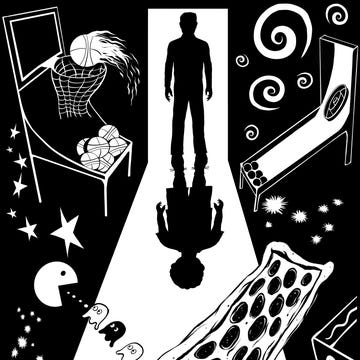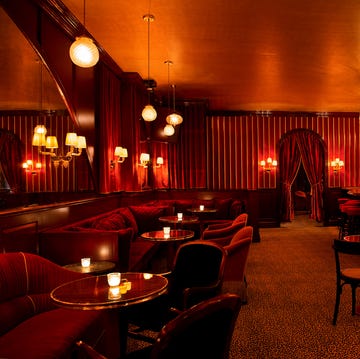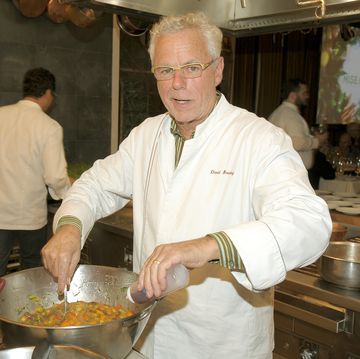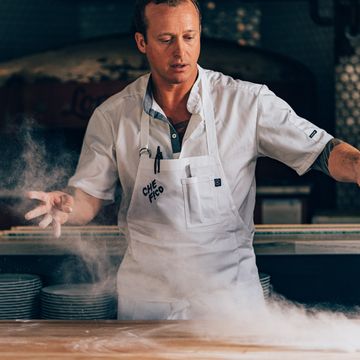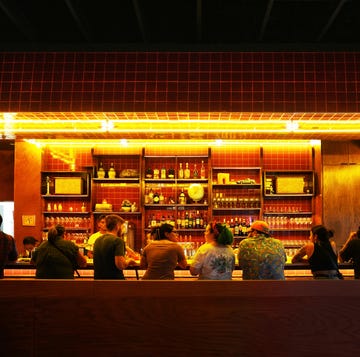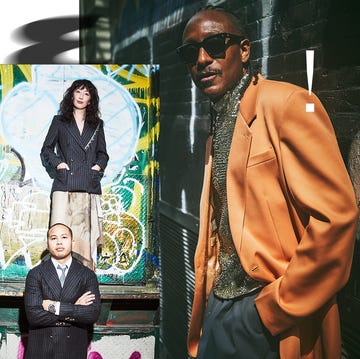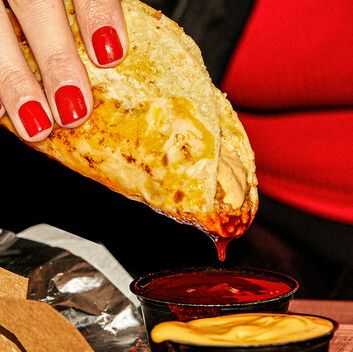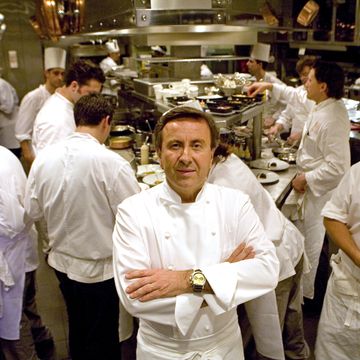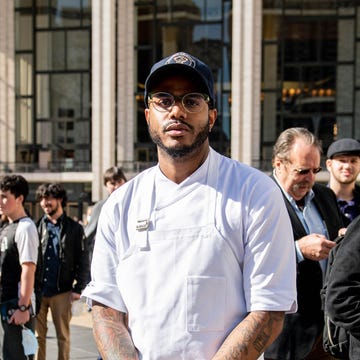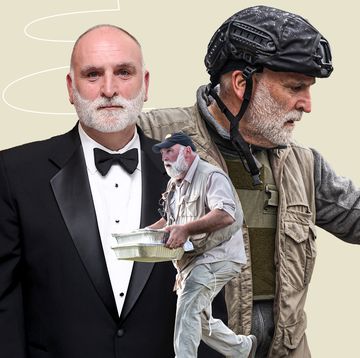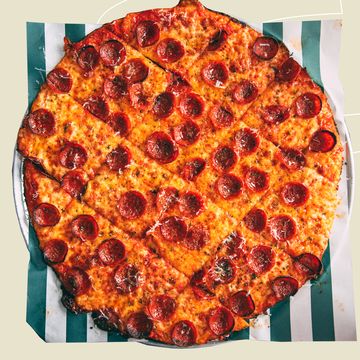At the Library of the NoMad Hotel in New York, people are waiting for Jon Batiste, the soon-to-be bandleader of The Late Show with Stephen Colbert, to play. It's the last night of his social music residency at The NoMad. For the past week, he's been experimenting with the intersection of music, food, and drink, expressing his Louisiana roots and his belief that live music should be an experience that unifies. This is a farewell party before he moves on to the Newport Jazz Festival.
The tables have been cleared away and the people are milling around the dim, book-lined room. Waiters float by with little bacon and Gruyere wrapped hot dogs, buttered and salted radishes, and silver trays with sparkling wine and softly green drinks garnished with leaves. There's a whisper: "If everyone in this room died tonight, it would be significant."
The whisper isn't wrong—Danny Meyer, emperor of one of the great restaurant empires, stands to the left. Daniel Humm, a paramount chef, is eight steps forward. Was that Gabe Stulman? I know that hat. And, Isn't he a big culture critic from the Times? Then there are the almost recognizable faces, the auras of import, women in blazers and backless dresses with tastefully placed tattoos. Men in relaxed suits, their top buttons loosened, some losing the tie or even the jacket. And of course there's Jon Batiste, himself.
The room keeps up the cocktail buzz and hum for a good half hour until Batiste and his musicians find the center. He calls out a "Hey-aaaahh"—holding the "a" so that it fills the space and stills the chatter. His band, Stay Human, calls out, too, again and again in a mesmerizing chant until the sound melts into song, moving in and out of melody, recognizable melodies, like "Killing Me Softly," and riffs and repeated measures, and then back into chanting. The audience calls out with them and sings with them, too—"Strumming my pain with his fingers…"
He's chosen these songs, songs everybody knows, so that they can be a part of the spectacle. There's no pedestal for the music and the musicians. They're a part of the the crowd—Batiste on his melodica, the tambourine man in a black Stetson, the mustachioed saxophonist—but they're the instigators, the leaders of clapping and dancing. Without explanation, the waiters start circulating, collecting glasses and pouring Cava and sweet vodka drinks into paper cups, the doors open, and the musicians head to the street. They're the pied pipers of groovy vibes, and the party-goers follow down Broadway, blocking befuddled Citi-bikers and taxi-drivers on a "love riot," as Batiste calls it, marching three blocks south to Eleven Madison Park.
There's a man playing a full-sized bass, pushing it down the street on what looks like a wheel from a grocery cart and 12-year-old boy, Batiste's mentee, playing guitar solos that leave the audience with looks of pure astonishment. They're improvising and everyone's taking a turn. The group walks through the streets and across the park, a mob of smiling adults returned to child-like exuberance until they cross Madison and enter the restaurant, and the love riot ends—or at least, it takes a twenty minute break before the official set begins.
It wasn't the first and it won't be the last, and who knows what will happen once Batiste takes charge of the music on The Late Show five nights a week or how his ecstatic energy will transmit through all the tiny screens. In a teaser on The Colbert Report, he also leads the studio audience out into the street. It's fun to watch—you can tell everyone's having a great time—but that spirit of improvisation doesn't seize you in the same way. You're watching the music, not living it. But that's not until September and for now, it's summer and the party has arrived and the concert's only just begun.

